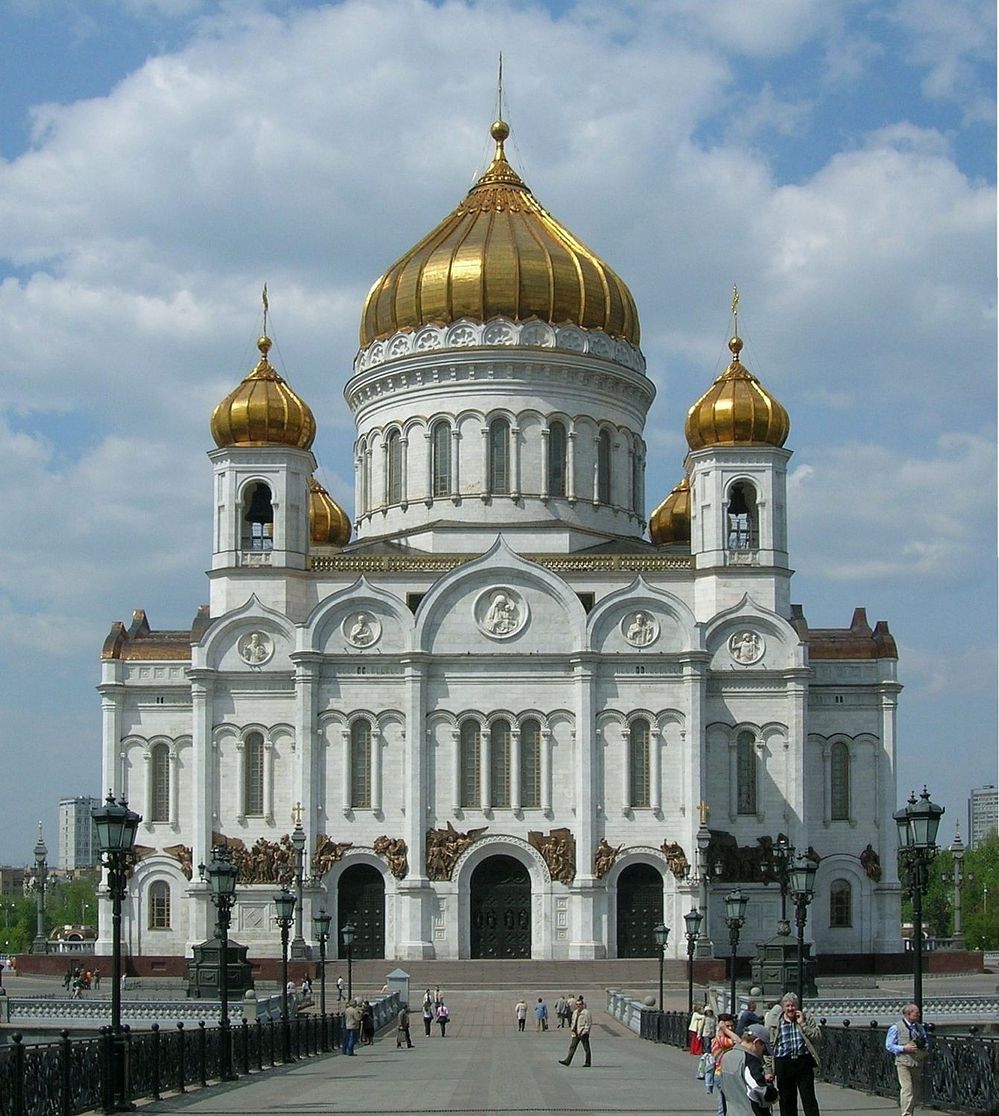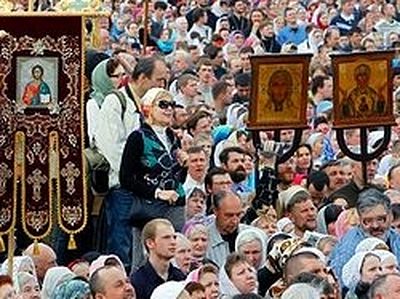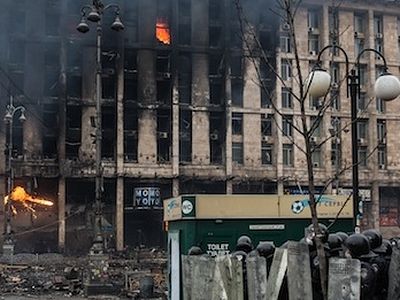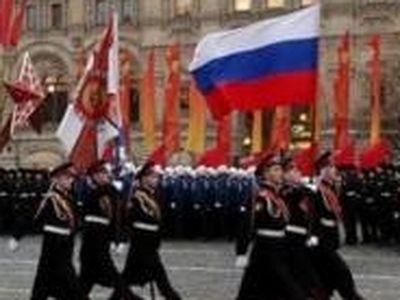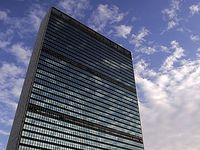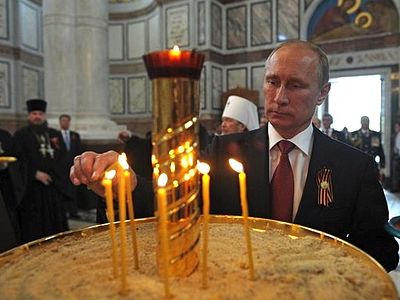Source: Aljazeera.com
By Vladimir Golstein
Vladimir Golstein teaches Russian literature and film at Brown University. He is the author of Lermontov's Narratives of Heroism (1999) and numerous articles on all major Russian authors. He was born in Moscow, went to the US in 1979, and studied at Columbia and Yale Universities.
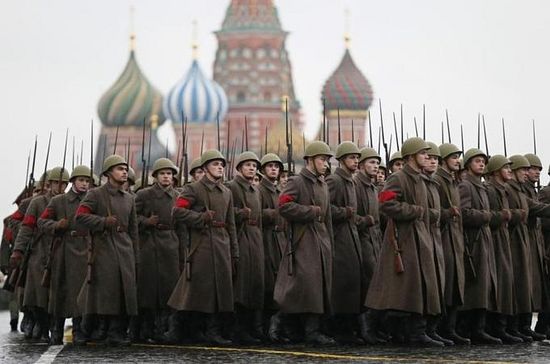
My grandfather moved to Moscow in the 1920s and that saved his life. His brothers and cousins, who stayed in Kiev, were killed by the Nazis at the notorious Babi Yar massacre of 1941. My father was drafted into the Red Army to fight the Nazis. He was wounded, and this wound, as well as the hard life in the Soviet Union, took his life at the early age of 55.
I just visited his grave two days ago. I wonder what the World War II veterans would think of the indiscriminate use of the term Nazi nowadays. How do they feel, when this word gets applied to Russians who lost 20 million people in their war against them, or Serbians who were one of the few nations which heroically resisted the German occupation? I certainly feel outrage. Thousands of sacred memories worldwide, Russian, Serbian, Polish, Ukrainian and others are violated when the word Nazi is misapplied.
The ideological war
I understand that all is fair in love and war; that a propaganda war has started; that the first victim of the war is truth. But there are degrees of use and abuse, and the Western propaganda machine has steeped very low indeed, with blatant impunity, one might add. There are objections here and there, including the one from the great film director, Emir Kusturica, but where is the outrage?
Where is the Jewish Lobby when one needs it? Who will stop this linguistic pollution, this attack on the sacred memory of the victims and fighters against the Nazis. How does this Lobby feel about some former Nazis (I am sure some of them are still alive) feeling shadenfreude over the fact that their bitter opponents who dared to stand up to them are not getting the thrashing?
One wants to believe that the Holocaust is not just an industry, with its advertisement or promotion campaigns: Call this product historic and sell it, call this group of people "Nazi" and bomb them. Or maybe we are already so confused in our moral sense, that we can't tell things apart?
And this campaign is gaining strength. Now Hillary Clinton compares Putin to Hitler. It seems that for some US politicians any NATO enemy can now be called Nazi and then bombed. Now various posters have flooded the internet depicting Russians in Nazi uniforms, while Russian demagogues compare the potential Russian annexation of Crimea to Hitler's Anschluss.
Russia gives plenty of ammunition to its critics: Its leader is authoritarian; its economic and political system is corrupt; it harasses its political opponents; it neglects and abuses its own population. There are plenty of arguments to be made for anyone who wants to criticise Russia.
However, do we really need this verbal nuclear option here, the invocation of the N(azi) word, the blatant abuse of truth? And why? Just to score a talking point and utilise the world's simplest and most abused metaphor? Is it a sign of intellectual laziness of the West, that doesn't want to waste time on arguments, when simple naming will do? Or maybe it is an attempt to hide something and to acknowledge that without the N-word, we cannot win the ideological war?
Political immorality
When President Ronald Reagan appealed to Mikhail Gorbachev to tear down Iron Curtain, it was to enable Germany to unite and freedom and democracy to reign. Or was it to let the Western military and economic engines roll eastward? If good fences make good neighbours why is the West pushing its fences all the way to Ukraine?
Russia finally decided to push the fence back. Some might view their desperate action as that of a bad neighbour, but was there a good stable fence to begin with, right where the line was drawn originally?
If Russia broke the rules, there should be legal arguments, or sanctions, or whatever, but does it justify this hysterical rhetoric? Is it worth it? Is it worth it to resort to the rhetoric that obscures the difference between right and wrong, good and evil, that introduces the Orwellian world where Heroes become Nazis and Nazis - Heroes? Such lies wound the world's soul and soil and split it apart in a more terrifying way than any amount of fracking, or drilling, or even bombing does.
Moral considerations, fine as they are, rarely have an impact on politics. So let me conclude on a pragmatic note. If that type of rhetoric offends me - I, who live in the sheltered world of academia and see the graves of my relatives once in a while - what about the Russians who can visit the 20 million World War II graves every day?
Russia is surely the wrong country to be labelled Nazi. In the context of Russian culture, which regards World War II as the true unifying moment of its recent history, that type of rhetoric would only strengthen the Russians' resolve.
Once again they will clench their teeth, and remember that they have always been attacked by those who looked down on them throughout the centuries: Mongols, Swedes, Poles, Frenchmen, or Germans. So let NATO do it this time.
